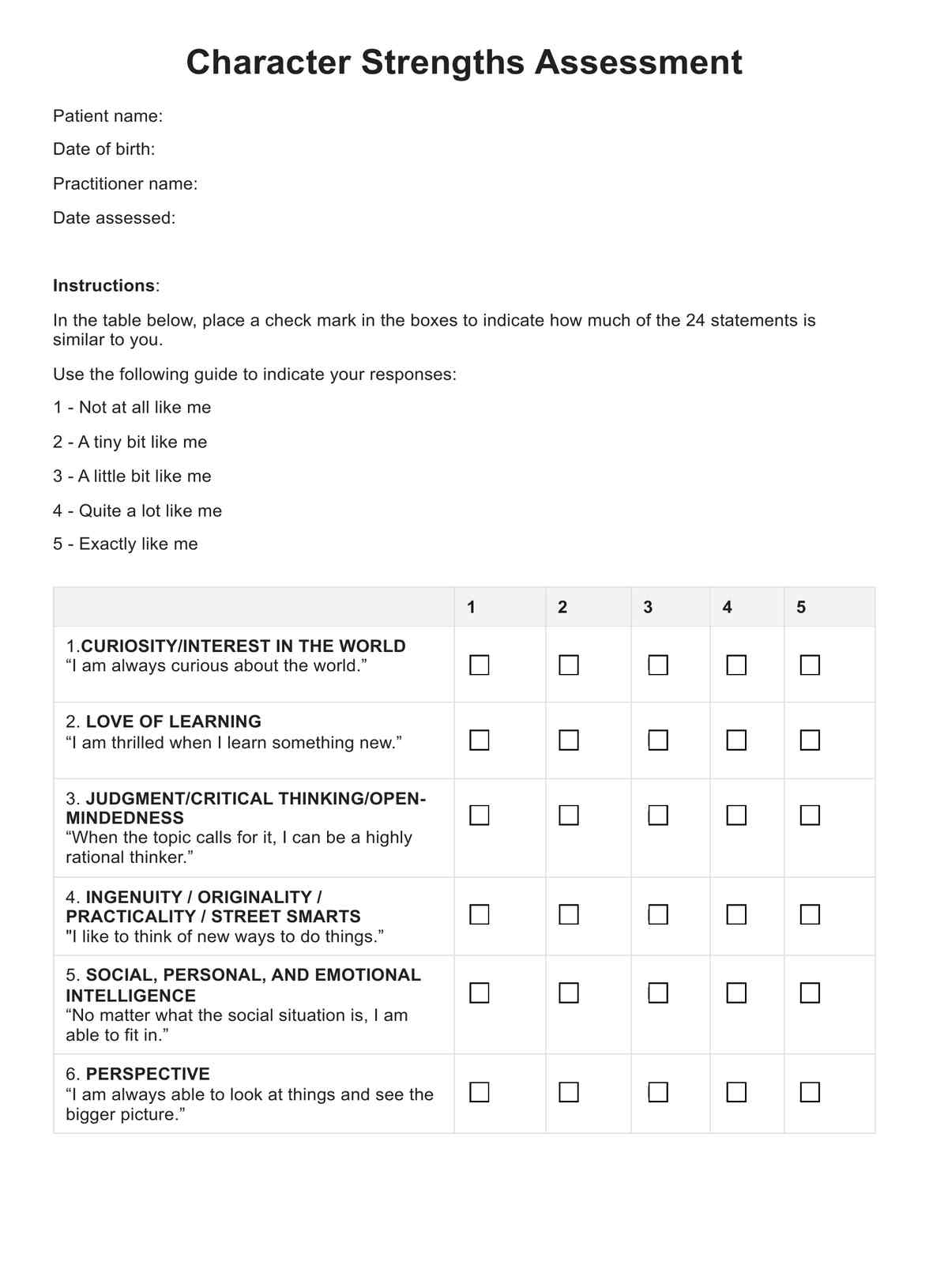The duration of a Character Strengths Assessment can vary depending on the specific assessment tool used and the depth of analysis required. Typically, it takes around 15 to 30 minutes to complete the assessment questionnaire.

Character Strengths Assessment
Uncover your strengths and boost personal growth with a character strengths assessment. Maximize potential and excel in all areas of life.
Character Strengths Assessment Template
Commonly asked questions
Yes, Character Strengths Assessment can be highly beneficial in professional settings. Many organizations and leaders use it for talent management, team-building, and career development. By understanding employees' character strengths, employers can create more engaging and fulfilling work environments and optimize individual and team performance.
Yes, there are various types of Character Strengths Assessments available. Some popular assessments include the VIA Character Strengths Survey, Clifton StrengthsFinder, and the Values in Action Inventory of Strengths (VIA-IS). Each assessment has its unique approach and set of character strengths identified.
EHR and practice management software
Get started for free
*No credit card required
Free
$0/usd
Unlimited clients
Telehealth
1GB of storage
Client portal text
Automated billing and online payments











